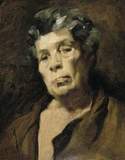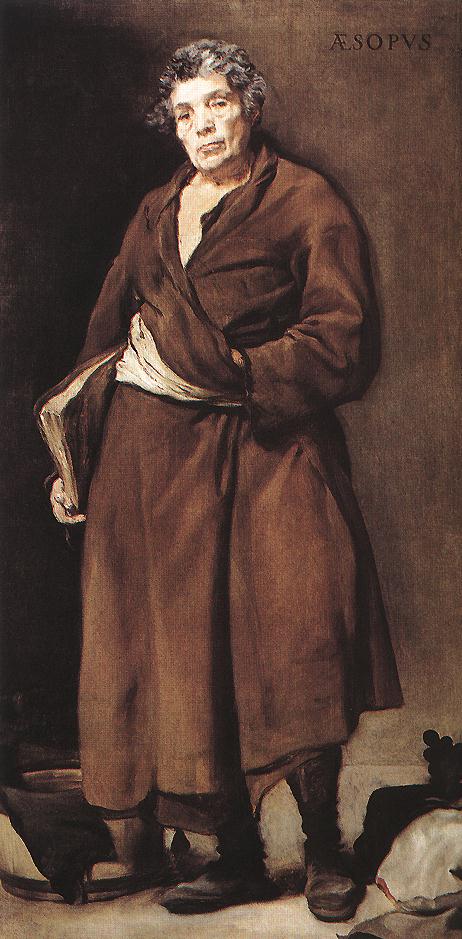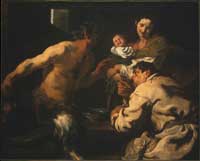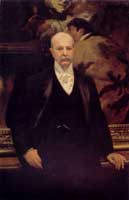|
Aesop
Diego
Velázquez (1599-1660) Spanish court painter
1640
Museo
del Prado, Madrid
Oil
on canvas
179
x 94 cm
Jpg:
Web
Gallery
Aesop
(E sops)
of "Aesop's Fables" fame -- the animal stories told to illustrate human
virtues and faults. He was suppose to have been a Greek slave around
the
time of 620-560 B.C. though many scholars today doubt if he ever really
existed. The stories supposedly came to him from the East which he made
popular and were passed down by word of mouth. The first collection of
stories was put together by the Athenian tyrant Demetrius two hundred
years
after Aesop's death and as the years went by, more and more stories
were
credited to him. If it was a good amimal fable, it must be an Aesop's
Fable.
The man has
a mythology almost as great as his stories. Socrates made poems
of
him. The biographer Plutarch put him as one of the "Seven Wise Men" or
"Seven Sages" and serving in the councel of the 6th century Lydian King
Croesus.
It was said
that his third owner set him free because of his wit and wisdom and
that
he was killed by the people of Delphi (while working for the king) when
he was sent there to divide money among the people. When he arrived, he
found them dishonest and refused to give them any. For his efforts they
threw him off a cliff. It is said that a terrible plague befell the
people
as a result.
Velázquez
rendition is of a very simple man whom has seen a hard life -- etched
in
the face and eyes with wishdom and intellect. He stands there, a former
slave, with his fables under his arm as if he is still giving council
to
kings.
In Velázquez's
case it would be King Philip IV of Spain who was Velázquez's
patron.
John
Singer Sargent

Head
of Aesop, Copy after Velázquez
1879
Notes:
|









